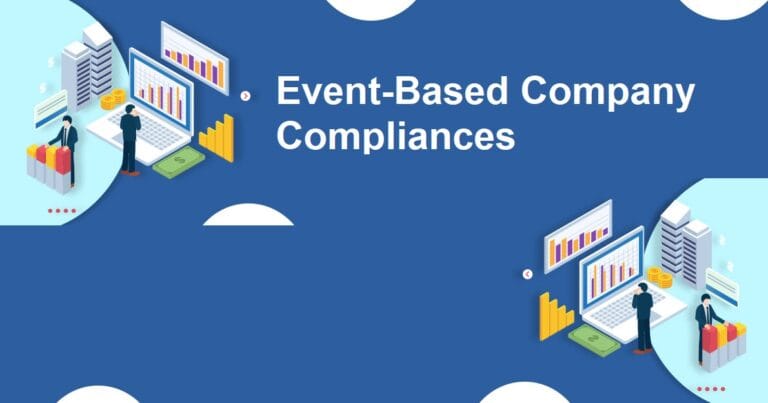A Limited Liability Partnership (LLP) is a business structure that combines the features of a partnership and a corporation, offering limited liability to its partners. Here’s an overview of what a Limited Liability Partnership entails:
Characteristics of a Limited Liability Partnership
- Limited Liability: Partners have limited personal liability for the debts and liabilities of the LLP. Their personal assets are protected, similar to shareholders of a corporation.
- Pass-through Taxation: LLPs are typically taxed as pass-through entities, where profits and losses are passed through to the partners’ personal tax returns. The LLP itself does not pay federal income taxes.
- Flexible Management: Partners have flexibility in structuring management roles and responsibilities. The LLP can be managed by partners themselves or appoint designated partners to manage daily operations.
- Legal Entity: LLP is a separate legal entity from its partners. It can own assets, enter into contracts, sue or be sued in its own name.
- Minimum Compliance Requirements: LLPs have fewer compliance requirements compared to corporations, making them easier to manage administratively.
- Limited Liability Partnership Agreement: While not mandatory in all jurisdictions, an LLP agreement outlines the roles, responsibilities, profit-sharing arrangements, and decision-making processes among partners.
- Perpetual Existence: LLPs have perpetual existence, meaning the entity continues to exist despite changes in partners unless dissolved as per legal requirements.
- Regulated by Law: Governed by the LLP Act, 2008 (and its amendments) in India, and similar statutes in other jurisdictions.
Process of Forming a Limited Liability Partnership
- Name Reservation: Choose a unique name for the LLP that complies with state naming rules and is available for use.
- File LLP Agreement: Prepare and file LLP agreement with the Registrar of Companies (RoC) along with Form 3, which details the roles, responsibilities, and capital contribution of partners.
- Obtain Designated Partner Identification Number (DPIN): Partners must obtain DPIN from the Ministry of Corporate Affairs (MCA) for statutory compliance.
- Incorporation Documents: File incorporation documents including LLP agreement, Form 2, and Form 4 with the RoC.
- Obtain Certificate of Incorporation: Upon verification of documents and satisfaction of requirements, the RoC issues a Certificate of Incorporation, officially establishing the LLP.
- Tax Registration: Obtain Permanent Account Number (PAN) and Tax Deduction and Collection Account Number (TAN) for tax purposes.
- Bank Account: Open a business bank account to keep personal and business finances separate.
- Annual Compliance: Fulfill annual filing and compliance requirements as mandated by the LLP Act and other applicable regulations.
Advantages of a Limited Liability Partnership
- Limited Liability: Protects personal assets of partners from business debts and liabilities.
- Pass-through Taxation: Avoids double taxation on income, as profits are taxed only once at the individual partner level.
- Flexibility: Offers flexibility in management structure, ownership, and decision-making processes.
- Ease of Formation: Relatively simple and inexpensive to form compared to corporations.
- Separate Legal Entity: Enhances credibility with customers, suppliers, and partners as a formalized business entity.
Disadvantages of a Limited Liability Partnership
- State-specific Regulations: Subject to state-specific filing requirements, fees, and regulations.
- Partner Liability: Partners can still be held personally liable for their own negligence or misconduct.
- Perpetual Existence: Perpetual existence can be a disadvantage if partners wish to dissolve the LLP at a later date.
A Limited Liability Partnership (LLP) provides partners with limited liability protection while offering flexibility in management and pass-through taxation benefits. It is suitable for professionals, small businesses, and service-oriented enterprises looking for a formal business structure with reduced compliance burdens compared to corporations. Entrepreneurs considering an LLP should carefully evaluate their specific business needs, tax implications, and regulatory requirements to ensure compliance and operational efficiency. Seeking advice from legal and financial professionals can help navigate the complexities of forming and managing an LLP effectively.
At Ujjwal Gupta & Co
We, at Ujjwal Gupta & Co, are dedicated to delivering personalized, high-quality solutions tailored to meet your financial and business needs. With our team of professionals and a client-first approach, we ensure that every challenge is met with expert guidance and strategic insight.
We are dedicated to ensuring your business’s success by providing best service practice available in the industry and that too at a cost effective pricing. Our team of experts is excited to work with you and provide the support you need to thrive in the Indian business landscape.
Our only motive is to create Value for Our Clients and accordingly, have a Client Value System at our Office.
So, let us help you navigate the complexities of finance and compliance, empowering you to focus on what matters most — growing your business. Get in touch today, and take the first step towards financial peace of mind.
An LLP is a type of business structure in India that combines the features of a partnership and a company. It provides the flexibility of a partnership with the benefit of limited liability protection for its partners. It is governed by the Limited Liability Partnership Act, 2008.
The key differences between an LLP and a traditional partnership firm include:
- Limited liability: In an LLP, the partners’ liability is limited to their capital contribution, whereas in a traditional partnership, partners have unlimited liability and may be personally liable for business debts.
- Separate legal entity: An LLP is considered a separate legal entity from its partners, while a traditional partnership is not.
- Perpetual succession: LLPs continue to exist even if partners change, whereas traditional partnerships may dissolve upon a partner’s exit.
An LLP requires a minimum of two partners to form. There is no maximum limit on the number of partners in an LLP.
- Individuals, including foreign nationals, and corporate entities such as companies, LLPs, or partnerships can be partners.
- At least one of the designated partners must be a resident of India.
The main advantages of LLP registration include:
- Limited liability: Partners are only liable up to their contribution.
- No minimum capital requirement.
- Separate legal entity: The LLP can own assets and enter into contracts in its name.
- Perpetual existence: The LLP continues to exist irrespective of changes in partners.
- Less compliance compared to private limited companies.
The procedure includes:
- Obtaining a Digital Signature Certificate (DSC) for designated partners.
- Applying for a Director Identification Number (DIN).
- Reserving the LLP name through the RUN-LLP form.
- Filing the Incorporation Form FiLLiP with required documents such as partner details, office address, and LLP agreement.
- Once the Registrar of Companies (RoC) approves, the Certificate of Incorporation is issued.
The LLP Agreement is a document that outlines the mutual rights and duties of the partners, the management structure, profit-sharing ratio, and other operational details. It must be filed with the RoC within 30 days of incorporation. It defines the internal rules of the LLP.
Yes, LLPs must maintain statutory records such as:
- Books of accounts.
- Annual statement of accounts and solvency (Form 8).
- Annual return (Form 11). LLPs are also required to file income tax returns and other relevant forms annually.
LLPs are taxed similarly to partnership firms under the Income Tax Act, 1961. The current tax rate for LLPs is 30%, with applicable surcharge and cess. Unlike companies, LLPs are not subject to dividend distribution tax (DDT) or minimum alternate tax (MAT).
LLPs must comply with the following requirements:
- Filing of Annual Return (Form 11) within 60 days from the end of the financial year.
- Submission of Statement of Accounts and Solvency (Form 8) within 30 days from the end of six months of the financial year.
- Statutory audit is required if the LLP’s turnover exceeds ₹40 lakh or contribution exceeds ₹25 lakh.
- LLPs must also file their Income Tax Return annually, regardless of their turnover.
Why Choose UGC?

Client Centric Approach
Client is the key driver of our service offerings. Our approach to service offerings is based on a client centric and customized approach. Our specialized teams are a mix of technical and industry experience in order to serve clientele for their specific needs.

Team Work
We have built high performing teams supported by strong work ethic. Our team is a mix of experts, professionals and support staff from technical and varied academic, social and ethnic backgrounds. We believe diversification plays a vital role in motivating the team.

Quick Turnaround
We always endeavour for a quick turnaround time to serve our clientele. We are supported by an experienced and client focussed support teams to offer timely services to our clientele. In case of any business exigencies and time sensitive service requirements, you can always count on us.

Open Communications
We believe that open communication is the core principle in order to demonstrate trust, build long lasting and valuable relationships with clientele. We are committed to ensuring transparency in communication, service offerings and delivery. We provide professional services to our clients.

Client Value System
We value for the Client time and thus, we offer services that are value for money. Quality professional services are provided to our clients, so that they are able to achieve their desired results. We are a quality trademark in the industry and thus, our clients count on us always.

Quality in Delivering Work
Our service offerings are driven by quality and reviews at every level. We strive to provide a qualitative and value-added delivery to our clientele. At all times, we endeavour to provide exceptional client service by meeting client expectations and driving client satisfaction.

























